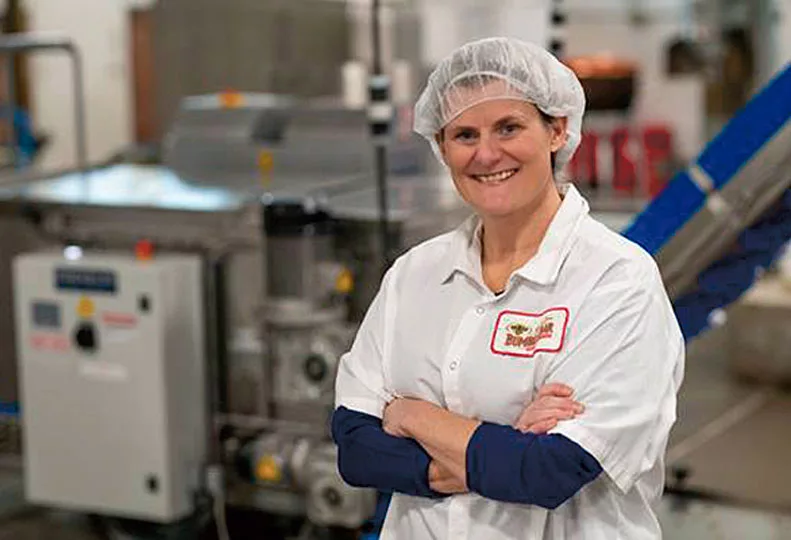Snack maker Bumble Bar adds co-packing division
Company also plans to reformulate flagship line of gluten-free foods

Spokane Valley-based snack maker BumbleBar has launched a business-to-business division with the establishment of Clean Copack.
Clean Copack processes “clean label”--minimal ingredient, naturally flavored--snacks, such as energy bars, cookies, trail mix, and granola.
Liz Ward, founder and CEO of BumbleBar, says the company’s revenue grew by more than 90% last year, to about $7 million. She attributes the growth to the company’s co-packing services. “Co-packing” is a term for manufacturing and packaging a customer’s proprietary product.
“Over the last 10 years, we’ve done more and more co-packing, and … it was kind of confusing, because we were sort of melding the consumer brand and the business-to-business brand,” Ward says. “We decided to split off the co-packing portion of it. It allows us to better define to the right audience who we are and what we do.”
Ward says a roughly $1.3 million loan from Craft3, a Spokane-based lender that specializes in lending to businesses and people who can’t secure funding from conventional sources, allowed BumbleBar to relocate and to upgrade equipment.
In June, BumbleBar moved out of its 38,000-square-foot space in the Flora Industrial park to a 24,000-square-foot space in the Spokane Business & Industrial Park, at 3808 N. Sullivan. Ward says it’s a return to the company’s roots. BumbleBar, which was founded in 1995, spent its first 10 years in SBIP.
Ward says that the new space is smaller than its previous location, but the company can work more efficiently because BumbleBar has upgraded its equipment.
Prior to the move and upgrades, Ward says BumbleBar was too busy with its co-pack operations to produce much of its own brand’s products.
Ward says the company has also added five new employees, including a director of operations, a human resources manager, and a company success manager. In total, BumbleBar has 45 employees, Ward says.
Ward says the co-packing industry is likely to continue flourishing.
“More broadly, the clean label, simple food market has just been on fire,” Ward says.
BumbleBar’s facility now has three packaging lines, Ward says, and is well-positioned to take on more co-packing work.
“Over the years, food manufacturing has become more regulated, which I personally think is a good thing, because it generally means safer food for everybody,” Ward says. “But it also means that the barrier to entry is really high.”
Co-packing is one way in which emerging companies can vault the barrier to entry into the food manufacturing industry, Ward says.
Ward says that while the Clean Copack division grows, BumbleBar will also return some of its focus back to its flagship products.
“We’re in the process of relaunching the BumbleBar brand, which we’ve paid really no attention to for quite a while,” Ward says. “It’s our 25th anniversary, and we’re reformulating and updating the BumbleBars.”
Related Articles

_c.webp?t=1763626051)
_web.webp?t=1764835652)

